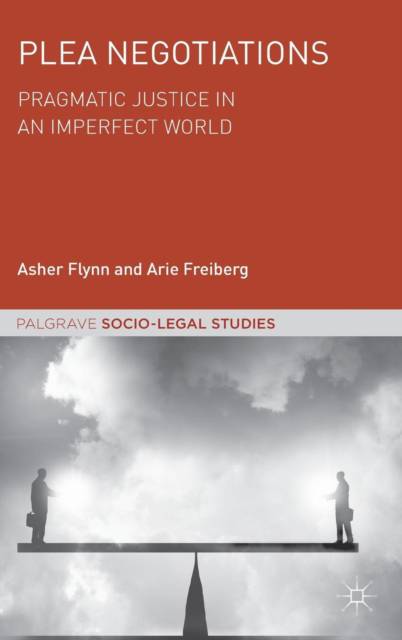
- Afhalen na 1 uur in een winkel met voorraad
- Gratis thuislevering in België
- Ruim aanbod met 7 miljoen producten
- Afhalen na 1 uur in een winkel met voorraad
- Gratis thuislevering in België
- Ruim aanbod met 7 miljoen producten
Omschrijving
Despite a popular view that trials are the focal point of the criminal justice process, in reality, the most frequent way a criminal matter resolves is not through a fiercely fought battle between state and defendant, but instead through a process of negotiation between the prosecution and defence, resulting in a defendant pleading guilty in exchange for agreed concessions from the prosecution. This book presents an original empirical case-study of plea negotiations drawing upon interviews with legal actors and an analysis of defence practitioner case files, to shine light on the processes and ways in which an agreed outcome is reached in criminal prosecutions, within the setting of a jurisdiction, like many others world-wide, which is suffering major shifts in state resources. Plea negotiations, also referred to as "plea bargaining", "negotiated guilty pleas" and "negotiated resolutions" are neither an alloyed benefit nor a detriment for defendants, victims or the criminal justice system generally, and like all compromises, this book shows how the perfect "justice" outcome gives way to the good, or just the reasonably acceptable justice outcome.
Specificaties
Betrokkenen
- Auteur(s):
- Uitgeverij:
Inhoud
- Aantal bladzijden:
- 277
- Taal:
- Engels
- Reeks:
Eigenschappen
- Productcode (EAN):
- 9783319926292
- Verschijningsdatum:
- 3/08/2018
- Uitvoering:
- Hardcover
- Formaat:
- Genaaid
- Afmetingen:
- 156 mm x 234 mm
- Gewicht:
- 589 g

Alleen bij Standaard Boekhandel
Beoordelingen
We publiceren alleen reviews die voldoen aan de voorwaarden voor reviews. Bekijk onze voorwaarden voor reviews.










